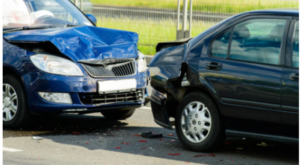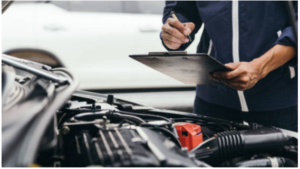Have you ever heard about the term “Cat N car”? You might have come across this while browsing used car listings and wondered what it means. Well, if this is it then my friend, you’re not alone!
Many drivers encounter this classification but remain unsure of its consequences. For such drivers, this guide is here! By the end of this blog, you’ll be equipped with a great understanding of the Cat N car, its meaning, insurance write-offs, and buying considerations.
Defining Cat N Cars
In simple terms, Cat N cars stand for Category N. It is a classification used by insurance companies and salvage yards to categorize vehicles with non-structural damage. Basically, cat n car meaning is a car that has suffered damage unrelated to its structural integrity. This could include cosmetic damage, electrical issues, or minor mechanical problems.
What Are Examples of Category N Car?

Category N, also known as Cat N, covers the types of damage that can classify a vehicle as non-structural damage. Examples of Category N damage include minor collisions, vandalism, or theft recovery where major issues are non-cosmetic or electrical systems. It can happen, but with proper repairs the vehicle can be returned to normal road condition. It is important to note that the N class does not involve significant system damage, making it a category where vehicles are often recovered and recycled after proper maintenance.
What Types of Damage Qualify a Car for Cat N Status?
- Category N cars commonly exhibit damage such as dents, scratches, or minor impacts.
- Non-essential components like lights or trim may also be affected.
- The damage typically impacts the car’s appearance or functionality rather than its structural integrity or safety.
- It’s crucial to recognize that insurance companies might have varying criteria for car insurance write-off, depending on the extent of damage and their internal policies. This underscores the need to understand the precise nature of the damage involved, as it can significantly impact how your car is classified and the payout you receive.
What Inspection Should You Perform Before Buying a Cat N Car?

Buying a Cat N car offers potential savings, but due diligence is crucial. Here’s what your pre-purchase inspection should involve:
- Review maintenance invoices to confirm parts, labor and procedures. Look for discrepancies and hidden issues and check the repair shop listing online for additional assurance.
- During the inspection, thorough study for mismatched paint, overspray, and hidden repairs, mainly underneath the auto for rust or structural compromises. Test all additives, together with lighting and electronics, as electric problems can also display broader problems; use a ruler for precision.
- Hire an experienced technician to identify weaknesses and assess the consequences of a period of damage before buying and selling Cat N car. Be transparent by sharing maintenance reports, discussing Cat N problems, and requesting detailed reports on issues found, severity, estimated maintenance costs, and safety potential consequences.
Pros & Cons of Owning a Cat N Car
While the “Cat N” label might raise eyebrows, there are hidden benefits to owning a car with this classification. So, let’s explore these pros that can outweigh the initial concerns:
- Cat N cars are typically much cheaper than their non-damaged counterparts, sometimes offering savings of thousands. This can be a major benefit for budget-conscious buyers.
- Some Cat N cars have sustained minimal damage, primarily cosmetic or repairable mechanical issues. With proper repairs, these cars can offer excellent value for money.
- Repairing a Cat N car instead of scrapping it reduces waste and environmental impact compared to manufacturing a new vehicle.
However, remember the important Cons:
- While cheaper initially, repairs for Cat N cars can be significant, impacting the overall savings. Thorough inspections and repair estimates are crucial.
- Finding insurance for Cat N cars can be challenging, and premiums might be higher compared to vehicles with clean histories.
Final Thoughts
While they need to be approached with knowledge, Cat N Car might be a good choice for consumers on a tight budget who are prepared to do their homework. Recall that being open and cautious is essential. You may locate a fantastic deal on a secondhand automobile by becoming aware of Cat N, thoroughly inspecting it, and evaluating its repair history.
FAQs
Is a Cat N car worth buying?
It depends on various factors, such as the extent of damage, repair cost, and your personal preferences. Cat N cars are typically salvage vehicles that have sustained non-structural damage.
Can I remove Cat N from my car?
Category N (formerly Cat N) is a permanent marker indicating the car has been written off due to non-structural damage. Once a car has been classified as Cat N, this designation cannot be removed from its history.
Does Cat N affect my insurance?
Yes, a Cat N designation can affect your insurance premiums. Insurers typically consider a vehicle’s history, including previous write-offs, when calculating premiums. While Cat N cars can be insured, premiums may be higher due to the observed increased risk associated with repaired salvage vehicles.
What happens if my car is a write-off?
If your car is declared a write-off, it means the cost of repairs exceeds its pre-accident value. The insurer will typically offer you a settlement based on the car’s market value during the accident.
Do I need to tell DVLA about Category N?
Yes, you should inform the Driver and Vehicle Licensing Agency (DVLA) if your car has been classified as Category N. This is necessary to update the vehicle’s records and ensure accurate information is available to future buyers.


